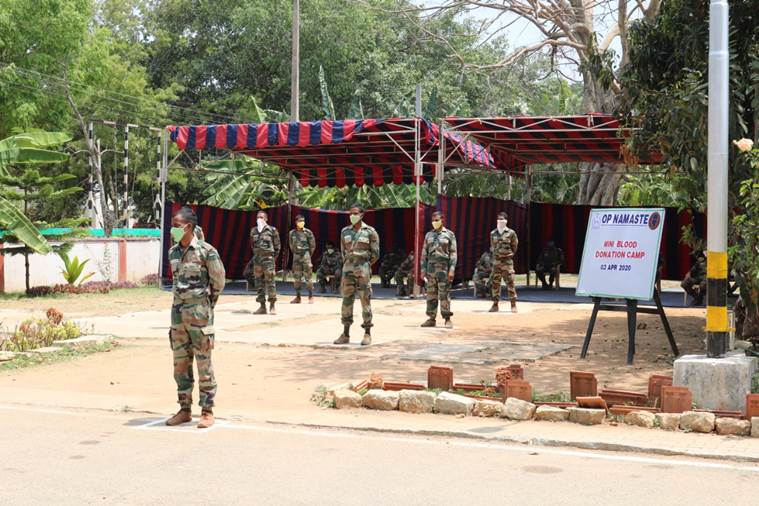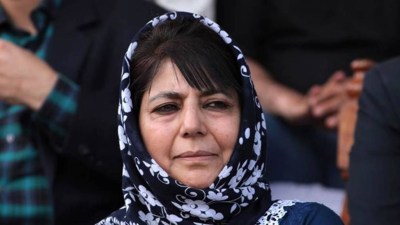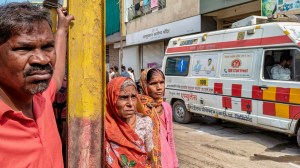Explained: Guidelines for blood donation during coronavirus pandemic
The Health Ministry has issued guidelines on blood donation to dispel apprehensions that donors and organisations might have about virus transmission due to transfusion or on contracting the virus at collection centres.
 Coronavirus: Vials of blood are seen in this photo. (Jake Danna Stevens/The Times-Tribune via AP)
Coronavirus: Vials of blood are seen in this photo. (Jake Danna Stevens/The Times-Tribune via AP)
The Ministry of Health and Family Welfare has released an advisory for voluntary blood donations during the novel coronavirus pandemic. The document has been prepared by the National Blood Transfusion Council, which comes under the Ministry.
The Ministry has assured there remains no precedent for the occurrence of respiratory viruses being transmitted by transfusion. In fact, virus transmission by transfusion was never reported for the previous two coronaviruses, SARS and MERS, either.
As there is no evidence that individuals can contract respiratory viruses due to blood transfusion, the AABB, US Food and Drug Administration (USFDA) and the Centre for Disease Control (CDC) have not issued additional guidelines for blood collection establishments, the document says. Neither has the World Health Organization (WHO), it adds.
📢 Express Explained is now on Telegram. Click here to join our channel (@ieexplained) and stay updated with the latest
The guidelines have been issued to dispel apprehensions that potential blood donors and donor organisations might have about virus transmission due to transfusion or on contracting the virus at collection centres.
Coronavirus: Who can, and cannot, donate blood?
Apart from the standard guidelines, the ministry has recommended that donors who have tested positive for the disease refrain from donating blood. Those with travel history to coronavirus-hit countries, or contact history with patients diagnosed with the disease, have also been asked to defer blood donation for a period of 28 days.
 At an Army blood donation centre. (File Photo)
At an Army blood donation centre. (File Photo)
To elaborate, individuals cannot donate blood for 28 days after departing from a country where there has been community transmission of coronavirus.
Similarly, individuals should postpone donating blood for 28 days if they have come in contact with a person suspected or confirmed to have COVID-19, including those under quarantine.
Persons who have contracted the virus cannot donate blood for 28 days from the time he/she has completely recovered, including radiological and virological clearance.
Don’t miss from Explained | When can a COVID-19 patient be discharged?
If, within 14 days of donating blood, the donor reports COVID-19 symptoms, or has been confirmed positive for the disease, or has been in close contact with a COVID-19 patient, the unutilised blood from the individual should be recalled and discarded.
The blood centre medical officer has to also ensure intervention as per existing guidelines if required.
How should blood collection centres maintain adequacy?
While mass gatherings have been postponed due to the lockdown measures, the advisory recommends that indoor and outdoor blood donation activities should be continued while adhering to social distancing guidelines and other rules, in order to maintain safe blood supplies.
According to the guidelines, blood donation sites should follow social distancing measures, as well as infection control measures such as maintaining hand hygiene, cough etiquette, safe disposal of biomedical wastes, etc.
The ministry recommends that donors who are regular be encouraged to come to sites that are convenient for them. The guidelines underline the critical role played by Voluntary Blood Donor Organisations for ensuring adequate blood supply.
If blood donation camps have stopped running in specific areas due to virus transmission, camps in non-affected areas must increase collection to ensure adequacy. Information, Education & Communication (IEC) campaigns should be implemented to raise awareness for the same.
Here’s a quick Coronavirus guide from Express Explained to keep you updated: What can cause a COVID-19 patient to relapse after recovery? | COVID-19 lockdown has cleaned up the air, but this may not be good news. Here’s why | Can alternative medicine work against the coronavirus? | A five-minute test for COVID-19 has been readied, India may get it too | How India is building up defence during lockdown | Why only a fraction of those with coronavirus suffer acutely | How do healthcare workers protect themselves from getting infected? | What does it take to set up isolation wards?
- 01
- 02
- 03
- 04
- 05






































